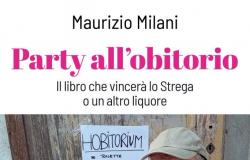Less Tolkien and more Tatarella. If it were an advertisement it couldn’t be anything other than this. A watchword, or rather a warning. Where with Tolkien we mean the sectarianism of the ruling class of the new right that surrounds Giorgia Meloni (and the term that alludes to a form of imprisonment of the leader is more than adequate) while Tatarella refers to the prehensile and harmonious intelligence of man, Pinuccio Tatarella precisely, which in the 90s contributed significantly to bringing the National Alliance out of a psychological rather than political ghetto. Having won the European elections, perhaps the time has come for Meloni too: to broaden, to open up, to make his creation resemble more and more an electorate which is now almost 30 percent, no longer 3 percent of a story now concluded. The alternative is to wait for the left to reorganize itself and occupy the space left free by the psychopathological brawl between Renzi and Calenda. Tatarella was looking for the silent majority, those who had been Craxians, republicans, liberals. And when someone arrived who was convinced that he was stirring up the defeated and unlucky in the playground, she responded like this: “You don’t waste time here.”
Meloni will certainly have read the recently released book by Alessandro Giuli entitled “Gramsci is alive. Syllabus for a contemporary hegemony” (Rizzoli). An intellectual related to her, journalist, president of the Maxxi Foundation, friend and colleague of those who work at the Foglio, Giuli archives in a few lines the tumultuously fatuous season of sovereignism (“an anaphylactic shock that occurred in the immune system of the globalized West”) to imagine a modern right therefore mature and plural. A liberal right, not rigorist but rigorous in respect of public accounts, which does not feed on fear but fights it with the realism of the will, an enlightened right. “On this ridge, today, on the right more than anywhere else, the mother of all challenges is being played out,” writes Giuli. “Transitioning from the mentality of the excluded and the ‘governed’ to a system logic, which literally means ‘being together’ and beyond the letter means precisely perceiving oneself as a ruling class supported by a prospective vision of society”. Few, or perhaps very few, people today, among friends, party comrades, in that political class that trudges behind a Meloni who is already light years ahead of them, speak with this clarity to the Prime Minister who with the Government action, through practice and without ideological elaborations, has already (and completely by itself) brought about very profound changes in the Italian right. Europeanism not theorized, but practiced. Rigor not theorized, but practiced. Patriotism, but not rhetorical. The fight against immigration, but without the racism of a Po Valley calf in a swimsuit and cocktail in hand.
Meloni in these hours, and in the coming weeks, will seek an agreement in Europe with the EPP for the composition of the commission. Perhaps he will vote for Ursula von der Leyen, and he will do so because he wants to be where decisions are made: because doing politics is not waving slogans around the head (“put in a tithe”) but doing politics means trying to change reality. And reality is changed by governing, not by shouting. Yet it would be enough to read what the newspapers closest to the Brothers of Italy write, or to follow the stuttering periods of certain deputies and senators of the right even though they grew up with Meloni, to realize how inadequate they are to support the growth of a leadership that does not think about itself as an episode or a parenthesis of Italian political news but can legitimately be imagined as a chapter in the modernization of Italian politics. In Fratelli d’Italia even attempts to open up to men and women from other political cultures have so far been marginalized by an internal power group which in reality does not help Meloni’s leadership to rise as far as it perhaps could. Carlo Nordio, Guido Crosetto and Raffaele Fitto are the only people, not post MSINE, who survived the rejecting treatment of the boys who grew up with Meloni. “Idiocy is an unforgivable form of infidelity”, Giuli always writes in his book. Very appropriately, we add, with a further adage: Meloni should move from the phase he is an idiot but he is my friend to the phase he is my friend but he is an idiot. Especially now. In the days following the victory in the European elections, when we risk the triumphalism of the “ever bluer sky”, that is, when we run the risk of swelling up like the famous frog. Because when we get bloated in politics, we don’t realize we’re bloated: we think we’re big. To the point of not understanding that many victories in the last two years have also been due to the ineptitude of opponents on the left who are now capable of reorganizing themselves, of forming coalitions, of broadening their base of consensus.
Looking at the secular, liberal and republican center which today votes to the left and to which Meloni does not speak also because perhaps no one among her people encourages her to do so and to take risks. And here we return to Tatarella, who said that “between the frog and the ox you must strive to be a bull”. Here you are. More Tatarella and less Tolkien. It’s not a slogan, it’s almost a warning.





